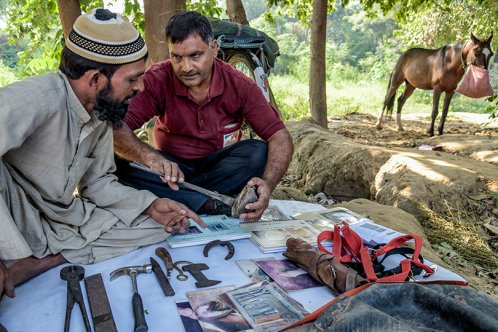
Brooke’s new Global Farriery Project aims to transform the farriery trade in low- and middle-income countries and make lasting improvements to animal welfare ensuring that healthy and happy working equids can continue to support communities’ livelihoods.
